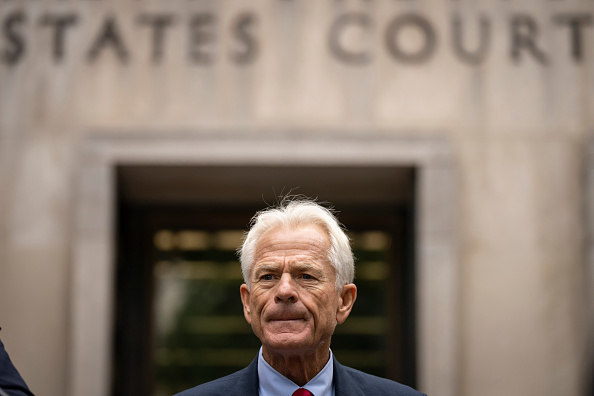Peter Navarro, Trump’s former trade adviser and a notable Big Lie evangelist, has been trying to hold onto hundreds of emails from his White House career. A federal judge just shut down his argument—again.
On Tuesday, U.S. District Court Judge Colleen Kollar-Kotelly denied his motion to stay a previous order pending appeal while tearing his argument apart, piece by piece.
“In florid terms, Defendant argues that this is a case of first impression and any ruling against him undermines key constitutional precepts of federalism,” she wrote. “The Court disagrees.”
A stay pending appeal is “an extraordinary remedy,” she explained. In order for a court to grant a stay, the defendant has to prove four factors: “the likelihood that the party seeking the stay will prevail on the merits of the appeal”; “the likelihood that the moving party will be irreparably harmed absent a stay”; “the prospect that others will be harmed if the court grants the stay”; and “the public interest in granting the stay.” Navarro’s argument, she said, did not meet any of this criteria.
The ruling comes as part of a lawsuit filed against Navarro seeking between 200 and 250 encrypted emails he stashed in a ProtonMail account from his time in the White House. The Presidential Records Act (PRA) of 1978 dictates that any records produced by federal agencies pertaining to the president, vice president, or other “covered employees” must be turned into the National Archives and Records Administration (NARA) within twenty days of their creation.
Navarro’s legal team revealed to the Justice Department last summer that he still had the emails, and refused to turn them over to NARA unless the DOJ offered him a “grant of immunity” in exchange.
Instead, the Justice Department sued Navarro for the emails last August, arguing that he was “wrongfully retaining Presidential records that are the property of the United States.” On Monday, DOJ prosecutors also filed a motion pushing back on his appeal.
In his attempt to get the case dismissed, Navarro has argued “without evidence or any supporting evidence of argument,” Kollar-Kotelly said, that producing the records would violate his right against self-incrimination, and that there is no explicit mechanism in the PRA obligating him to turn over the records.
At one point, he even tried to compare his situation to a 2021 Supreme Court decision allowing the Centers for Disease Control to impose a nation-wide eviction moratorium to slow the spread of COVID-19.
“Here, no agency seeks to wield ‘vast economic [or] political’ powers,” she wrote. “The United States simply seeks the return of its property, and the United States may avail itself of judicial process to vindicate its property rights.”
She denied his motion for a stay on the grounds that his argument was meritless.
“At its heart, Dr. Navarro’s motion is little more than a rehashing of the same arguments the Court has previously rejected on the merits,” the judge wrote.
Read the full order below:



